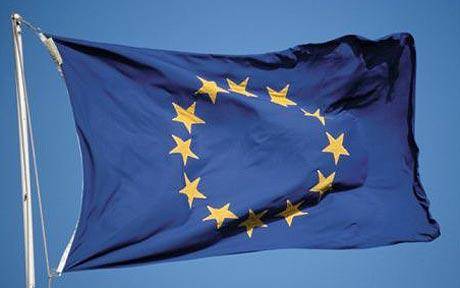EU Plans for World Power
 EU draws up plans to establish itself as ‘world power’
EU draws up plans to establish itself as ‘world power’
The European Union has drawn up secret plans to establish itself as a global power in its own right with the authority to sign international agreements on behalf of member states.
By Bruno Waterfield in Brussels – Published: 7:00AM BST 07 Oct 2009
Confidential negotiations on how to implement the Lisbon Treaty have produced proposals to allow the EU to negotiate treaties and even open embassies across the world.
A letter conferring a full “legal personality” for the Union has been drafted in order for a new European diplomatic service to be recognised as fully fledged negotiators by international bodies and all non-EU countries.
According to one confidential paper, the first pilot “embassies” are planned in New York, Kabul and Addis Ababa.
The move is highly symbolic in Britain as it formally scraps the “European Community”, the organisation in which Britons originally voted to remain in the country’s only referendum on Europe 34 years ago.
Mark Francois, Conservative spokesman on Europe, said that the deal showed why the British should have been given a referendum on the Lisbon Treaty.
“As we have long warned, the Lisbon Treaty increases the EU’s power at the expense of the countries of Europe,” he said. “The new power a single legal personality would give the EU is a classic example.
“It illustrates why it is wrong for Labour to try to deny the British people any say on this Treaty at all.”
The decision, taken shortly before Ireland’s referendum last week, will mean a new European diplomatic service with over 160 “EU representations” and ambassadors across the world.
Lorraine Mullally, the director of Open Europe, described the move as “a huge transfer of power which makes the EU look more like a country than an international agreement”.
“Giving the EU legal personality means that the EU, rather than member states, will be able to sign all kinds of international agreements – on foreign policy, defence, crime and judicial issues – for the first time,” she said.
She pointed out that the 1975 referendum was on staying in the EC and that it was the European Communities Act that gave Brussels legislation primacy over British law.
“British voters agreed to join the European Communities, not a political union with legal personality with the power to sign all kinds of international agreements,” said Miss Mullally. “No one under the age of 52 has ever had a say on this important evolution and it’s about time we did.”
A restricted document circulated by the Netherlands, Belgium and Luxembourg, seen by The Daily Telegraph, spells out the need for legal changes to set up a European External Service (EEAS), an EU diplomatic and foreign service with “global geographical scope”.
The paper said: “The EEAS will need a legal status providing it with functional legal personality so that it has sufficient autonomy.
“This legal personality should also give it the capacity to act as necessary to carry out (its) tasks.”
A British diplomat defended the decision. “The EU has been able to sign treaties for over a decade. The innovation under the Lisbon Treaty is that the European Community will cease to have legal personality. This is about simplification,” she said.
Brussels ambassadors yesterday (TUES) began detailed work, in secret, to create new institutions, the EEAS, “foreign minister” and EU President, that are to be set up under the Lisbon Treaty.
Decisions “in principle” will be taken despite the fact that both Poland and the Czech Republic have not yet fully ratified the new EU Treaty.
The creation of the EEAS has sparked a bitter Brussels turf war. The European Commission could lose up to 1,424 senior staff from three departments.
Another 400 staff will be taken from the Council of the EU and an “equivalent” number will be seconded from national diplomatic services.
The EEAS will take over Commission representations – there are currently more than 160 offices around the world – and its senior diplomats will be given the same status as national ambassadors.
© Copyright of Telegraph Media Group Limited2009
